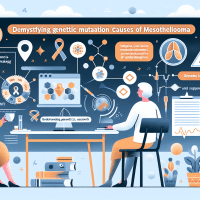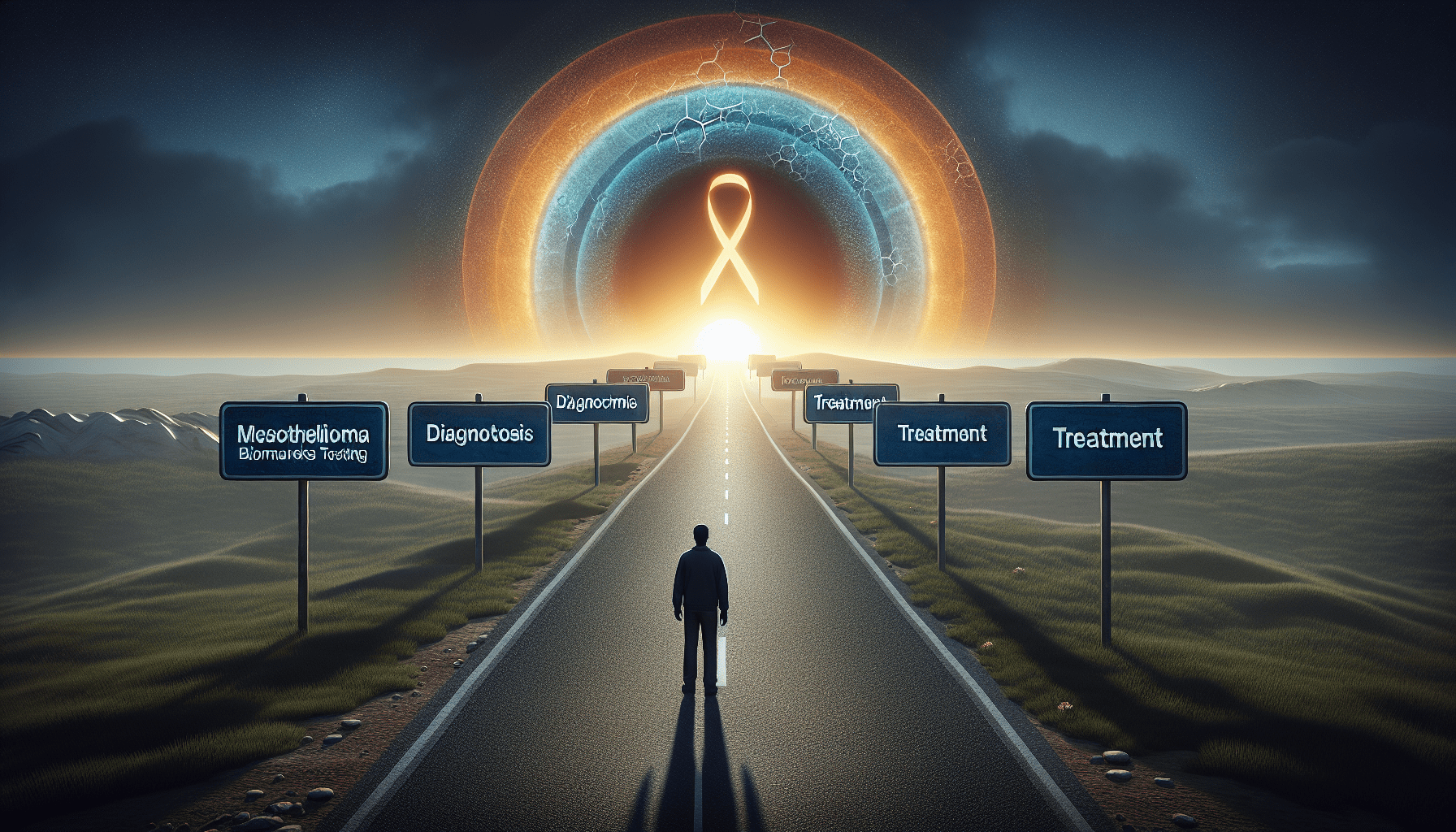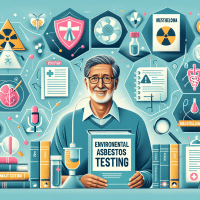Mesothelioma Genetic Testing Benefits: A Guide
Hello, I’m a registered oncology nurse with over 10 years of experience, dedicated to supporting patients and their families through the challenging journey of mesothelioma. Today, I want to talk about a subject close to my heart – the benefits of mesothelioma genetic testing. I know that facing this diagnosis can feel overwhelming, but understanding how genetic testing can guide treatment choices offers hope and clarity.

Understanding Mesothelioma and Its Challenges
Mesothelioma is a rare and aggressive cancer that primarily affects the lining of the lungs and, in some cases, the abdomen. The journey through diagnosis and treatment is emotionally taxing, and I understand the fear and uncertainty that comes with it. I’ve seen firsthand the importance of having accurate information and compassionate support.
In mesothelioma, the stage of the disease is critical. The mesothelioma staging system (Stages 1-4) helps doctors determine treatment options and predict outcomes. For example, early-stage diagnosis (Stage 1) can sometimes lead to more effective interventions than later stages. Understanding your stage means you can make informed decisions about your care with a healthcare team you trust.
The Role of Genetic Testing in Mesothelioma
Genetic testing in mesothelioma has become an essential tool in modern oncology. When we refer to its benefits, we are talking about insights that can tailor treatment strategies, enhance early detection, and even predict treatment responses. This personalized approach means that the therapies you receive are better aligned with your unique genetic makeup, potentially improving survival rates and quality of life.
How Genetic Testing Enhances Diagnosis and Tailored Treatment
I believe that every patient deserves a treatment plan that is as unique as they are. Genetic testing can detect specific biomarkers associated with mesothelioma, guiding oncologists in selecting therapies that are most likely to be effective. For example, identifying genetic mutations can assist in choosing targeted therapies, which focus on the particular pathways driving cancer growth. This personalized approach not only helps in planning the treatment but also offers hope that better treatment responses can be achieved compared to one-size-fits-all strategies.
A Closer Look at Mesothelioma Staging
Below is a simple table that outlines the basic stages of mesothelioma, which provides context for treatment decisions:
| Stage | Description |
|---|---|
| Stage 1 | Localized cancer; the best candidates for aggressive treatment. |
| Stage 2 | Cancer has begun to spread locally; treatment focuses on containment. |
| Stage 3 | Significant local spread; combinations of therapies are usually necessary. |
| Stage 4 | Advanced spread; treatment is focused on palliative care and quality of life. |
Emotional and Practical Support on the Journey
As someone who has supported many through similar diagnoses, I know that information is only one part of the journey. The emotional and psychological toll of mesothelioma is profound. Alongside the clinical benefits, genetic testing can provide clarity, reducing some of the anxiety that comes from uncertainty. It opens up conversations with your healthcare provider about personalized treatment options and potential clinical trials, leading to a sense of empowerment.
Practical Steps for Patients and Families
Here are actionable steps you can take as you navigate this complex journey:
- Ask about Genetic Testing: If you’re newly diagnosed, inquire with your doctor whether genetic testing is appropriate to tailor your treatment plan.
- Compile Questions: Prepare a list of questions for your healthcare provider. For example, ask how genetic testing results can inform your treatment or whether there are targeted therapies available.
- Seek Emotional Support: Connect with support groups where you can share experiences and learn from others. Mental health professionals specializing in oncology can provide strategies for managing anxiety, fear, and grief.
- Stay Informed: Use reputable sources such as the National Cancer Institute and American Cancer Society to stay up-to-date with the latest research and treatment options.
Questions to Ask Your Healthcare Provider
Before your next appointment, consider asking:
- How can genetic testing influence my treatment plan?
- What targeted therapies are available based on my test results?
- How does my stage of mesothelioma affect treatment options?
- Are there nearby clinical trials or specialized centers for mesothelioma care?
- What resources are available for emotional and mental health support?
Resources and Next Steps
I encourage you to take a moment to absorb this information and discuss your options with your healthcare team. Consider these additional resources for further guidance:
- Mesothelioma Staging Explained – A detailed look into what each stage means for treatment choices.
- Coping with Mesothelioma Diagnosis – Insights and strategies to manage the emotional impact of a mesothelioma diagnosis.
Remember, the aim of this guide is to empower you with clear, compassionate and actionable insights. The information shared is based on the latest research and my personal experience in oncology. However, it is not a substitute for personalized medical advice. Always consult with your healthcare provider regarding your treatment options and any questions you may have.
Information on treatment guidelines current as of May 2025.
Before concluding, I want to share a simple, printable checklist that you can use during your consultations with your doctor:
Printable Checklist: Questions for Your Doctor
Use this list to ensure you cover all the essential points during your appointment:
- What are my specific mesothelioma stage and genetic markers?
- How can genetic test results influence my treatment plan?
- What targeted therapies and clinical trials are available?
- Could any side effects affect my daily life, and how can they be managed?
- What support services are available for both me and my family?
This checklist is designed to help you prepare for meaningful conversations with your provider, ensuring that your concerns and needs are addressed.
In closing, please know that although mesothelioma presents many challenges, there is hope in individualized care and compassionate support. I remain committed to sharing accurate, empathetic insights to help you navigate each step of your journey. Together, through informed decisions and mutual support, we can face the future with strength and resilience.






